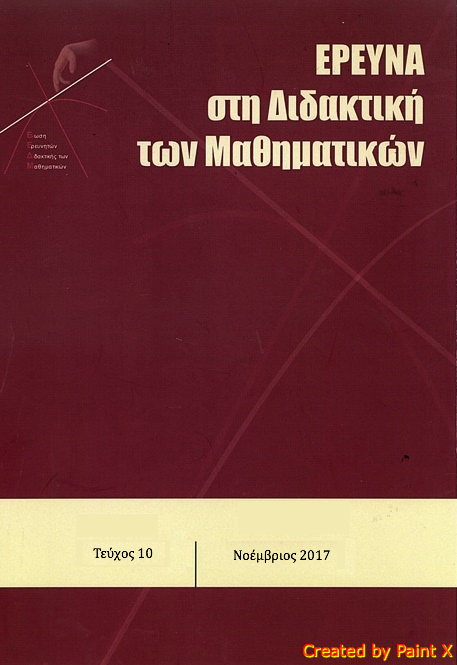Η ΜΑΘΗΜΑΤΙΚΗ ΕΚΠΑΙΔΕΥΣΗ ΤΩΝ ΠΑΙΔΙΩΝ ΤΗΣ ΜΟΥΣΟΥΛΜΑΝΙΚΗΣ ΜΕΙΟΝΟΤΗΤΑΣ ΣΤΗ ΘΡΑΚΗ: ΚΟΙΝΩΝΙΚΕΣ, ΠΟΛΙΤΙΣΜΙΚΕΣ ΚΑΙ ΠΟΛΙΤΙΚΕΣ ΠΑΡΑΜΕΤΡΟΙ

Περίληψη
Η ανάπτυξη της μαθηματικής κατανόησης και σκέψης αποτελεί μια πολύπλοκη διαδικασία που οριοθετείται από ιστορικούς, κοινωνικούς, πολιτισμικούς και πολιτικούς παράγοντες. Η παρούσα μελέτη επιχειρεί να αναδείξει κοινωνικά, πολιτισμικά και πολιτικά ζητήματα που ανακύπτουν στο πλαίσιο της μάθησης και της διδασκαλίας των μαθηματικών από μαθητές της μειονότητας στη Θράκη, μέσα από την προσωπική νοηματοδότηση του ερευνητή. Η αναστοχαστική προσέγγιση κρίσιμων συμβάντων που υιοθετείται υποδεικνύει ότι για ένα μειονοτικό μαθητή, η επιτυχής συμμετοχή στην πρακτική της μαθηματικής εκπαίδευσης συνιστά μια συνεχή πάλη με εξουσιαστικές δομές που λειτουργούν σε τοπικό αλλά και γενικό επίπεδο.
Λεπτομέρειες άρθρου
- Πώς να δημιουργήσετε Αναφορές
-
Σακονίδης (Charalampos Sakonidis) Χ. (2017). Η ΜΑΘΗΜΑΤΙΚΗ ΕΚΠΑΙΔΕΥΣΗ ΤΩΝ ΠΑΙΔΙΩΝ ΤΗΣ ΜΟΥΣΟΥΛΜΑΝΙΚΗΣ ΜΕΙΟΝΟΤΗΤΑΣ ΣΤΗ ΘΡΑΚΗ: ΚΟΙΝΩΝΙΚΕΣ, ΠΟΛΙΤΙΣΜΙΚΕΣ ΚΑΙ ΠΟΛΙΤΙΚΕΣ ΠΑΡΑΜΕΤΡΟΙ. Έρευνα στη Διδακτική των Μαθηματικών, (10), 27–54. https://doi.org/10.12681/enedim.15217
- Ενότητα
- Άρθρα

Αυτή η εργασία είναι αδειοδοτημένη υπό το CC Αναφορά Δημιουργού 4.0.
Οι συγγραφείς των άρθρων που δημοσιεύονται στο περιοδικό διατηρούν τα δικαιώματα πνευματικής ιδιοκτησίας επί των άρθρων τους, δίνοντας στο περιοδικό το δικαίωμα της πρώτης δημοσίευσης. Άρθρα που δημοσιεύονται στο περιοδικό διατίθενται με άδεια Creative Commons BY και σύμφωνα με την άδεια μπορούν να χρησιμοποιούνται ελεύθερα, με αναφορά στο/στη συγγραφέα και στην πρώτη δημοσίευση.

